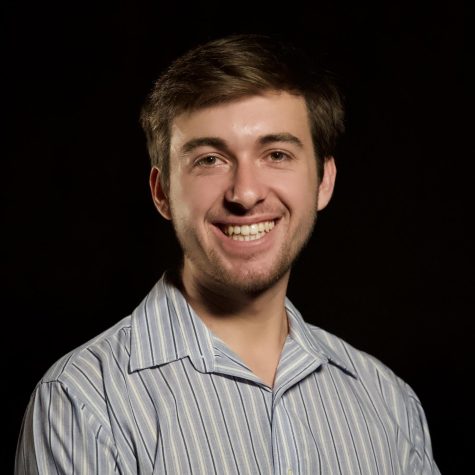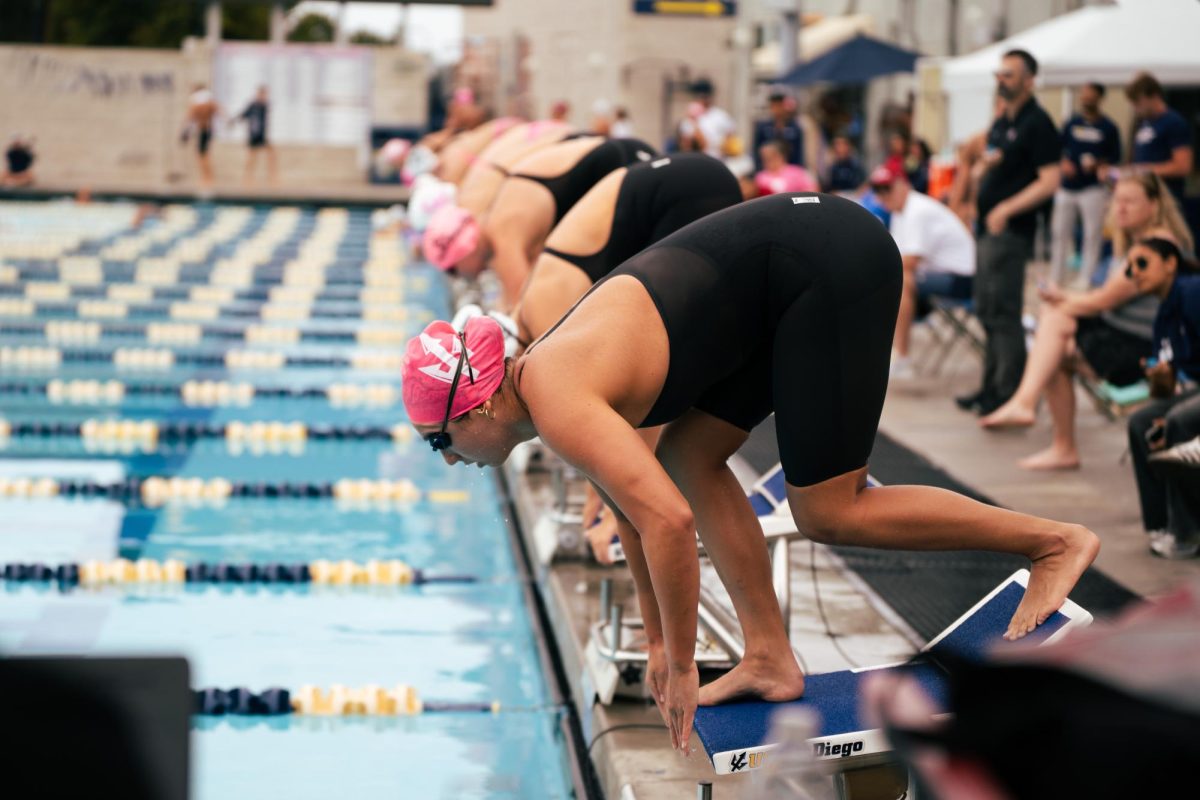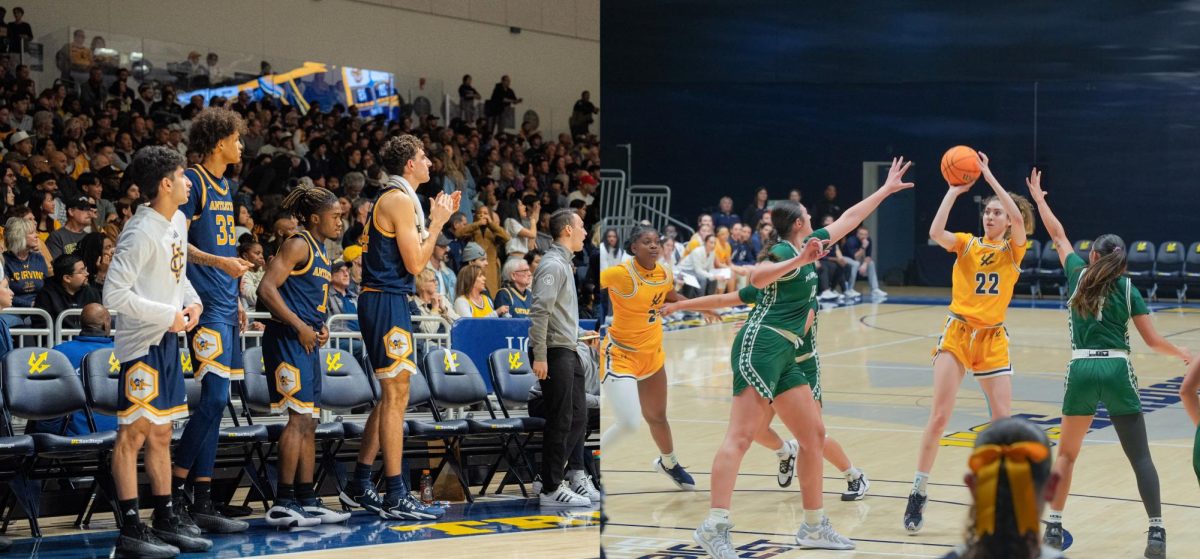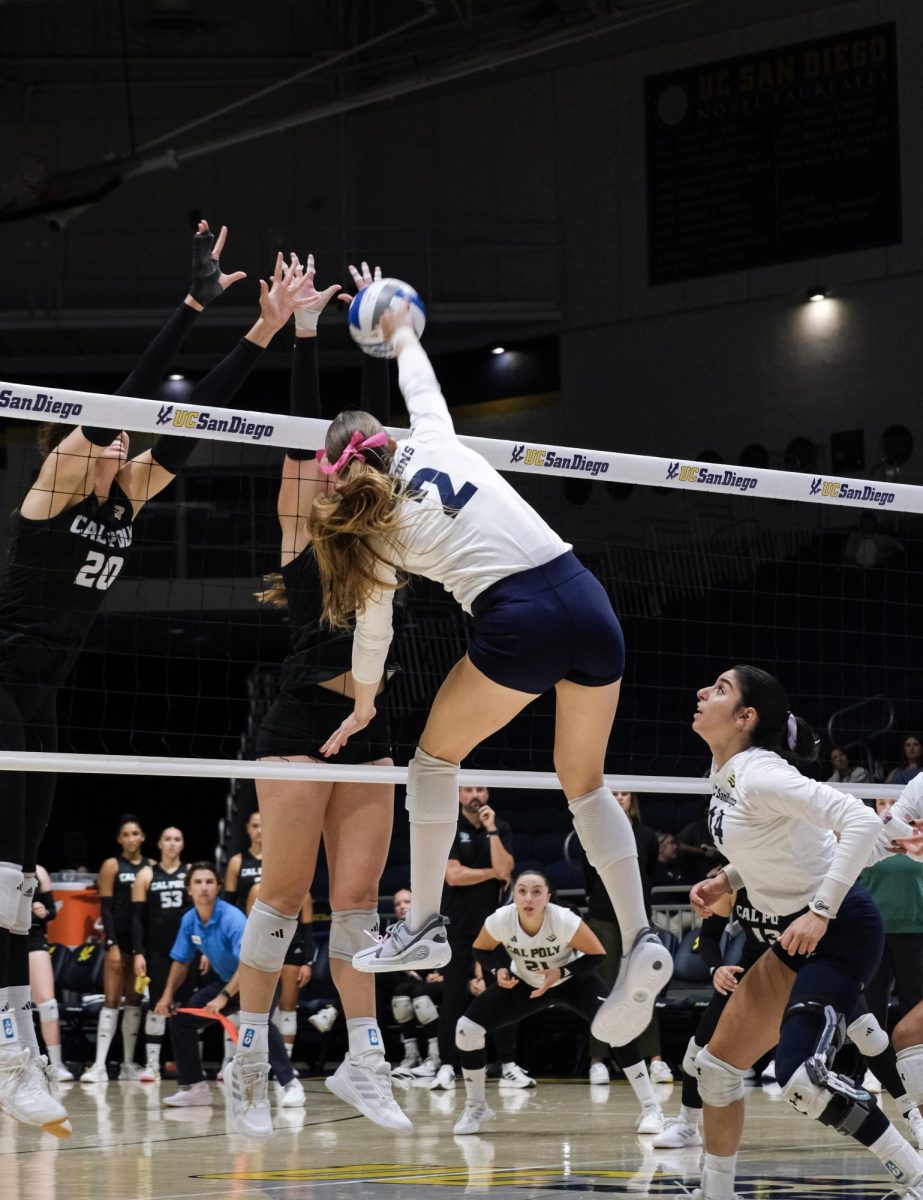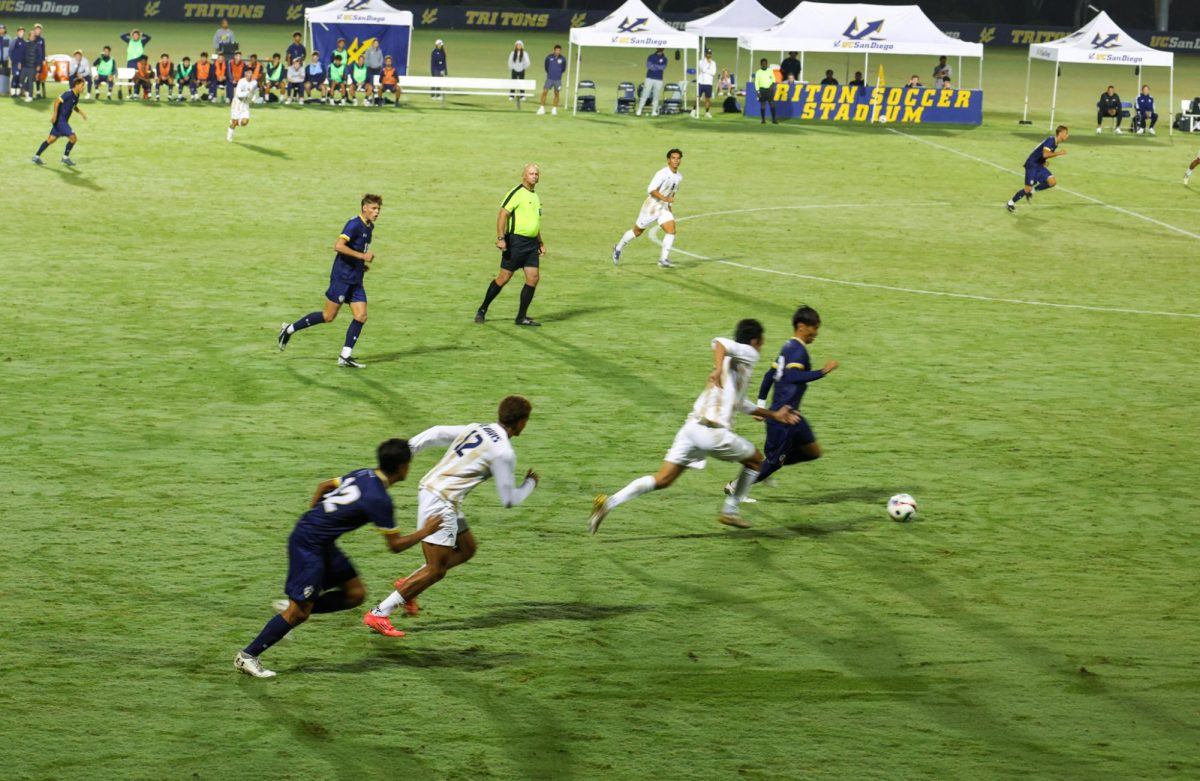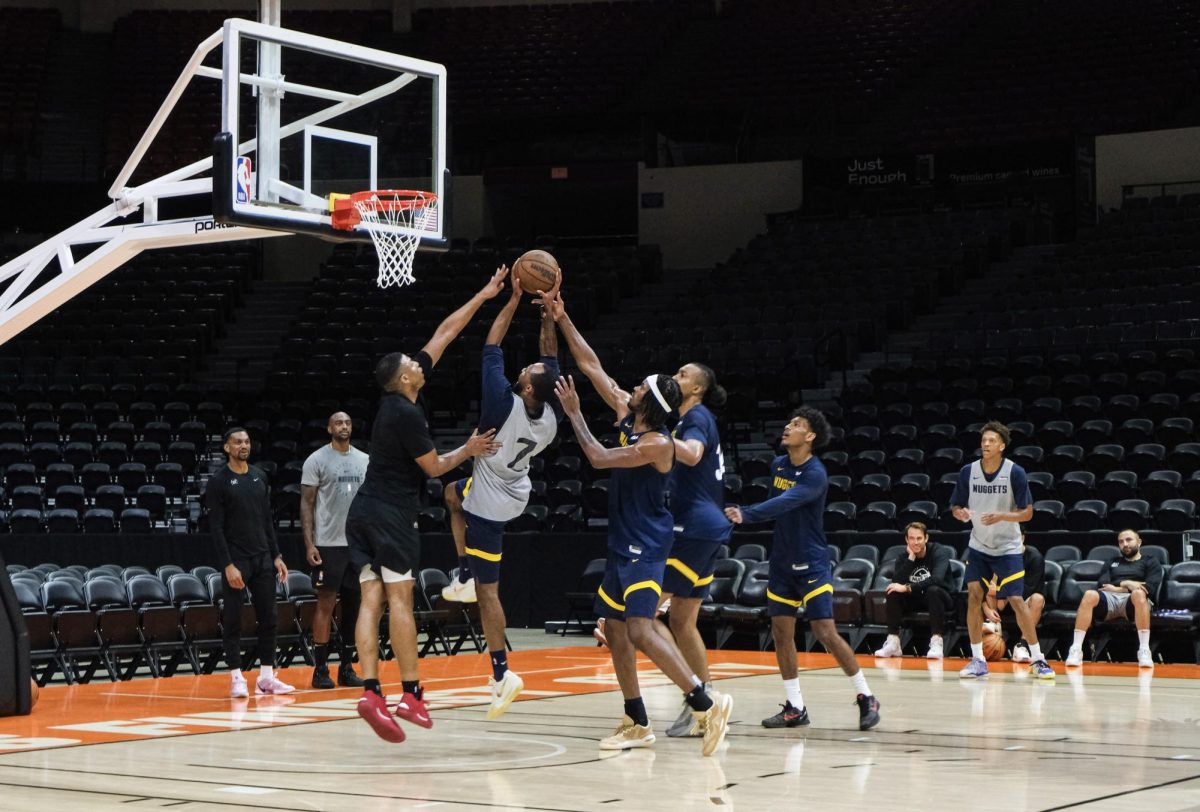Editor’s Note: The following is a satirical article for The DisreGuardian, a series of articles published annually for The Guardian’s April Fool’s issue. Sports will resume publishing normal content next week.
I stand looking across Muir Field on a Thursday morning, the sun warming my face. Behind me, a very tall man, perhaps 6’10”, approaches. My subject, Franz Wagner, steps up next to me to survey the grass. After a few moments watching, in tense silence on my part, relaxed on his, I ask if I can record our conversation today. “You won’t need to record to remember my words,” he replied, his attitude reminiscent of a certain Swedish footballer. I suppose in those early moments, I was skeptical. “I like your shoe,” he continues, and walks away, expecting me to follow.
Wagner leads us past the Sun God statue, looming in the distance. He begins to tell me about his introduction to the sport, unprompted.
“My grandfather came to this school in 1968 on a footballing scholarship, except he didn’t know that.
“They wanted my 6’11” ópa to become the wunderkind star of the new American football team. As the story goes, the way he played prompted the extravagant demise of that record-setting UCSD football team, the first and only of its kind. In that year he cemented himself as an athletics hero, a sporting Agamemnon.”
Wagner’s expression is lost in blissfully ignorant memory, his tone one of wonder.
“I’ve had one lucky potato since I was seven years old. I’ve never lost a game with it. It was a gift from my grandfather, a leftover from his Tuesday dinner.” He pulls out a wrinkled gray lump. It sort of smells.
Wagner is a fifth year Critical Gender Studies international student from Germany at Sixth College. He weighs 220 pounds and has an older brother named Mo. He is the only member of UC San Diego’s hot potato team. He is the holder of the UCSD win record by a margin of 254 victories, with 255 wins to his name.
“This field…,” he says without solicitation as we pass Marshall College, gesturing to his left, “it is not conducive to prime potato passage.” I am slightly confused, and silently urge him to continue. He doesn’t. This would not be the first time during our conversation in which I felt my subject was leading the interview rather than myself.
I ask where instead he prefers to play: “Petco Park, or Gilman Transit Center. Some of my most vociferous groupies frequent the 41.” We continue in silence.
The topic turns to his inspiration, what pushes him to achieve athletic excellence: “The only person who has ever scored a point on me, the wretched Jeezus [CalTech star Jesús De Paz], is but a distraction upon the field of play.” He sneers. “My only obstacles to greatness are my own limitations, of which there are none. I am my own greatest influence, my own cantankerous inspiration — myself and, of course, Nathan Chen.”
I, too, admire the 2022 Beijing US Men’s Figure Skating Olympic Gold Medalist for his grace, finesse and rejection of flat shoes. I feel the stirrings of a bond forming between Wagner and I.
As I stroll along Ridge Walk, he circles around me on his tricked out electric scooter. I did not see where he brought it out from. The topic turns to his training. How does one create athletic excellence?
He responds, “To enhance my superior talent, I wake up and squeeze expeditious rocks for four hours to strengthen my grip. Then I do 1000 pushups, 1000 crunches, 1000 situps, and I run for ten kilometers. This is to rigorously crush my far-inferior opponent, Jeezus. When I was a child—”
He stops abruptly. A nearby group of elderly ladies, likely visiting their grandchildren, shrieks as one of their gaggle falls to the floor. With a speed and grace unlike any I’ve ever witnessed in person, Wagner catches her with his non-potato hand. “We must always attempt to lift as we climb,” quoting feminist icon Angela Davis. I have witnessed the CGS degree in full force.
Seven-and-a-half minutes later, we arrive at RIMAC Gym, Wagner’s self-described home-away-from-home-away-from-home. As we walk through the doors, I ask him what he most likes about being a student athlete. He ignores me, instead beginning to descend the stairs in silence.
As we venture down a fluorescent hallway towards a closed door, he finally turns to me. Maintaining direct eye contact, he mutters, “Contemporaneously.” I am confused, but I have learned that this is his way.
He turns to open the door and we enter a dark room deep in the heart of RIMAC, stopping in front of two folding chairs and a small table with a laptop. A mix of his highlights waits to be played. Even though he has only played eight competitive matches, the mix is just over thirteen hours long. We sit in complete silence. As the tape plays, muted, I realize I am starting to doze off.
When I awake, the laptop is frozen on the final frame. In this room, it is unclear how much time has passed. The other chair is empty, the door open, my shoe missing, my foot bare. Wagner is gone, the old potato on the table the only evidence he was ever here.
Image courtesy of Richard North



